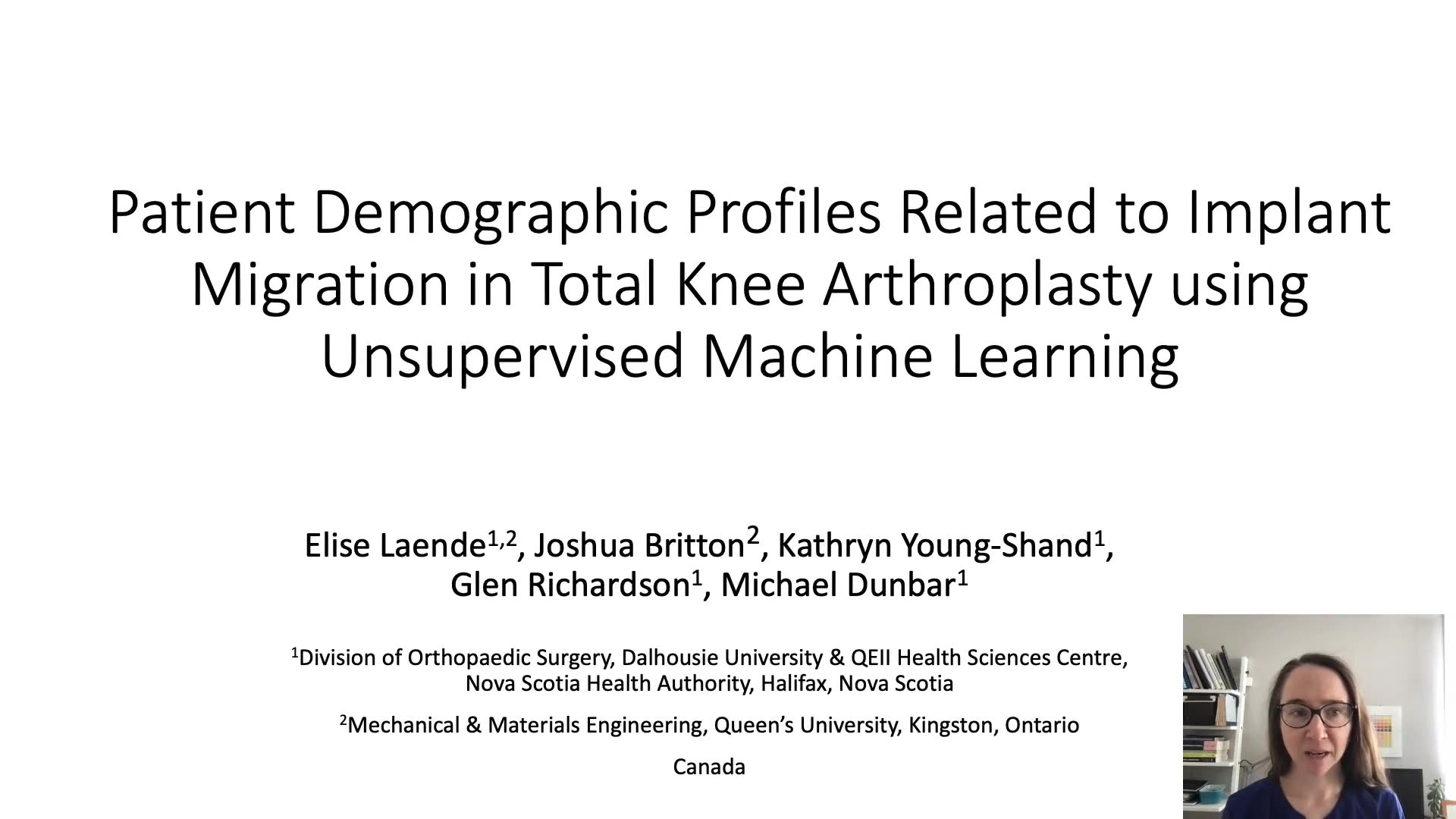Please login to view this media

- Talk
- 15/09/2021
- Canada
Patient Demographic Profiles Related to Implant Migration in Total Knee Arthroplasty Using Unsupervised Machine Learning
Description
This video presentation features Elise Laende discussing a study on patient demographic profiles associated with implant migration in total knee arthroplasty (TKA) using unsupervised machine learning techniques. The study arises from previous findings that showed variations in implant migration based on sex and fixation methods, particularly using radiostereometric analysis (RSA). Laende explains the research objective, which aims to explore relationships between patient demographics, implant factors, and migration outcomes through cluster analysis. A dataset of 360 TKA patients was analyzed, revealing distinct demographics across sex and fixation types. The analysis utilized hierarchical agglomerative clustering to categorize patients, with findings indicating that while clustering revealed significant differences in male patients' demographics and migration factors, female patients showed minimal differences. Notably, factors like age and BMI influenced the cluster formations, yet the overall implant migration results between these clusters were not clinically meaningful. Limitations of the study include a restricted variety of implant designs and potential influences of clustering algorithms. Laende concludes by suggesting that TKA patient groups should be analyzed more granularly, particularly considering gender differences, and advocates for broader use of uncemented fixation for women based on these insights.
DOI: 10.1302/3114-220953